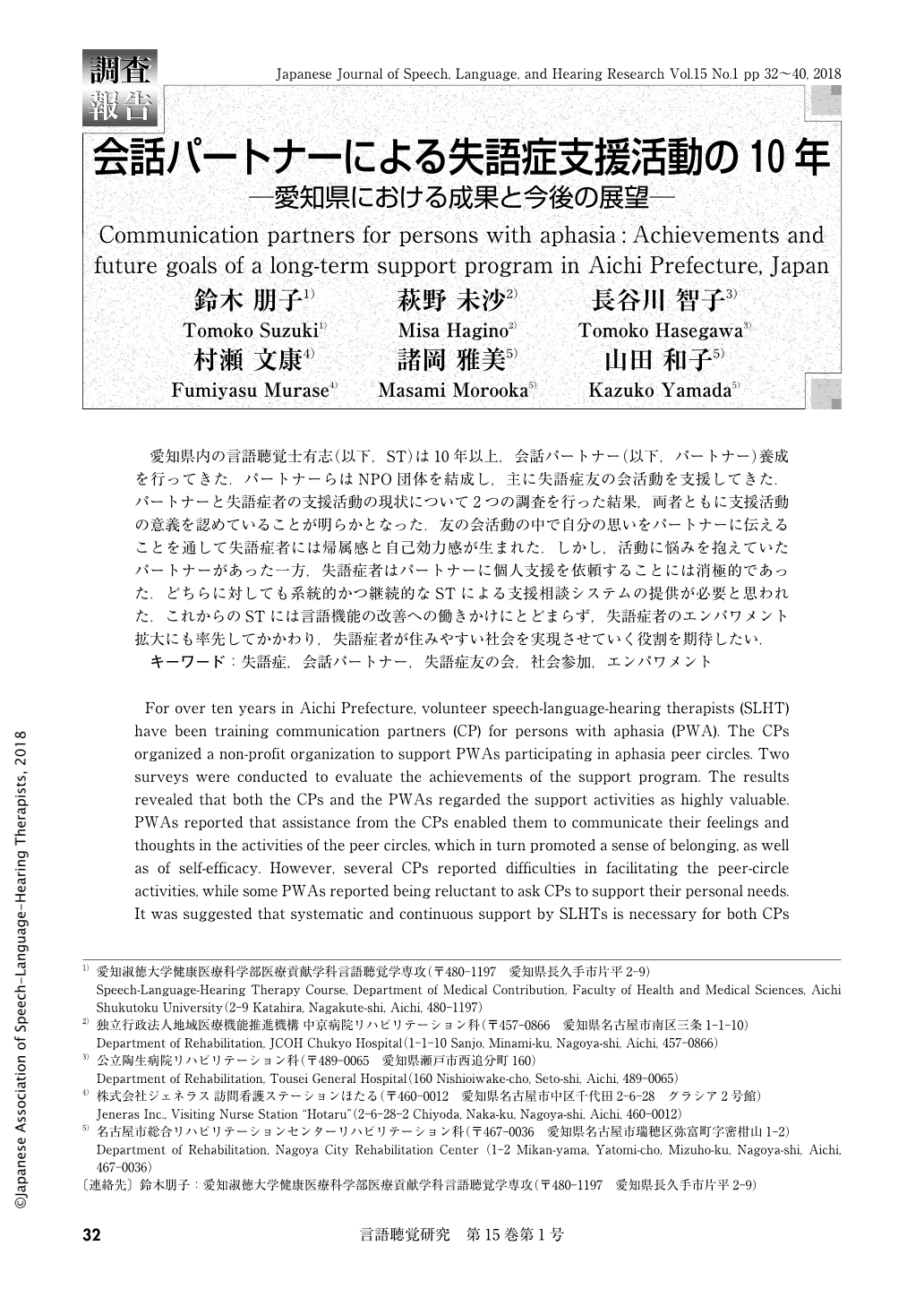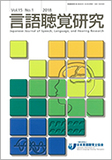Japanese
English
- 有料閲覧
- Abstract 文献概要
- 1ページ目 Look Inside
- 参考文献 Reference
愛知県内の言語聴覚士有志(以下,ST)は10年以上,会話パートナー(以下,パートナー)養成を行ってきた.パートナーらはNPO団体を結成し,主に失語症友の会活動を支援してきた.パートナーと失語症者の支援活動の現状について2つの調査を行った結果,両者ともに支援活動の意義を認めていることが明らかとなった.友の会活動の中で自分の思いをパートナーに伝えることを通して失語症者には帰属感と自己効力感が生まれた.しかし,活動に悩みを抱えていたパートナーがあった一方,失語症者はパートナーに個人支援を依頼することには消極的であった.どちらに対しても系統的かつ継続的なSTによる支援相談システムの提供が必要と思われた.これからのSTには言語機能の改善への働きかけにとどまらず,失語症者のエンパワメント拡大にも率先してかかわり,失語症者が住みやすい社会を実現させていく役割を期待したい.
For over ten years in Aichi Prefecture, volunteer speech-language-hearing therapists (SLHT) have been training communication partners (CP) for persons with aphasia (PWA). The CPs organized a non-profit organization to support PWAs participating in aphasia peer circles. Two surveys were conducted to evaluate the achievements of the support program. The results revealed that both the CPs and the PWAs regarded the support activities as highly valuable. PWAs reported that assistance from the CPs enabled them to communicate their feelings and thoughts in the activities of the peer circles, which in turn promoted a sense of belonging, as well as of self-efficacy. However, several CPs reported difficulties in facilitating the peer-circle activities, while some PWAs reported being reluctant to ask CPs to support their personal needs. It was suggested that systematic and continuous support by SLHTs is necessary for both CPs and PWAs. Therefore, SLHTs should take the lead in broadening their role beyond speech and language therapy and so empower PWAs and their families in order to restore PWA's participation in the community.

Copyright © 2018, Japanese Association of Speech-Language-Hearing Therapists. All rights reserved.


